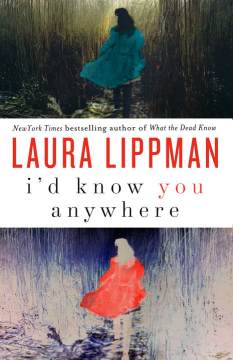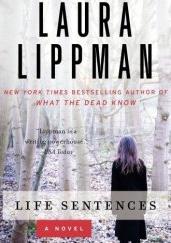




July 28, 2026
Location, Location, Location

Over the past decade, my reputation as a writer has become inextricably linked to my hometown of Baltimore. Thirteen years, fourteen novels, and only one, In Big Trouble, is set outside Maryland.
So why does the fifteenth, I'D KNOW YOU ANYWHERE, unfold in the suburbs of Washington D.C.? And is the vagueness of the landscape in the novel a reflection of my own vagueness about the area or indicative of a writer too lazy to drive 45 minutes and expend some shoe leather on exploring new neighborhoods?
None of the above. The fact is, I have a pretty good working knowledge of the D.C. suburbs. I am married to a native; I have in-laws and friends there. I can even figure out an alternative route when flummoxed by the traffic. Yet I chose to place my main character, Eliza Benedict, on a fake street in a fake neighborhood somewhere in a hazily rendered Bethesda. Her daughter attends a school with a real name -- North Bethesda Middle -- but every detail about it, save the bullying policy, is concocted. The few recognizable landmarks in the novel tend to be commercial enterprises with no real local flavor -- Five Guys, Montgomery Mall, Rita's Custard. What gives?
Generally, I don't like to tell people how to read one of my books. It feels presumptuous. I have always maintained I get my say, 100,000 words or so, and then the book goes out into the world and the readers should have their say. But because this book breaks with some familiar patterns in my work, I do want to address the issue of Eliza's relationship with the D.C. suburbs.
Eliza is a woman living in exile. Her family left Baltimore when she was fifteen, hopeful that a change of residence would help everyone in the family put behind the horrible memories of Eliza's kidnapping and rape. For the most part, it has worked. Eliza is, given her circumstances, a remarkably sane and levelheaded woman, happy in the life she has made for herself. She has attended college in Connecticut, lived in Houston and London. But, for all her travels, she has no home in the world. Careful readers will note that she is forever cataloging what is wrong with her house, although it sounds quite nice. In an early draft, I think I even referenced the final song of FIDDLER ON THE ROOF, "Anatevka," but that mournful litany was too on point. Instead, there is a scene where Eliza watches BRIGADOON on TCM one Sunday afternoon.
"Of course it ended happily -- at least for Gene Kelly and Cyd Charisse. But what of the other Brigadooners -- Brigadoonites? -- who might not meet their true loves in the small village, or who might not love with a ferocity that awakens a town that otherwise would sleep for a century? What would happen over the years, as the town's residents became more connected by blood?"
For every person who loves his or her hometown, there's probably one who needs to leave in order to realize big dreams or ambitions. I've always felt that part of the reason my books have been translated into twenty languages is that the love of a hometown is pretty universal, no matter how peculiar the hometown. (Yes, there really was a place in Baltimore that served deep-fried green pepper rings dredged in powdered sugar. Yes, cops of a certain generation here do say "a police.") But there is an equally universal desire to move on from some places, for many reasons. Eliza keeps moving on, in hopes that she will find her place in the world.
As a writer and reader, I have always been drawn to novels where place matters. But I've been lucky to have strong roots in a town I love. Perhaps you have, too. How would you feel if you had been uprooted at a vulnerable age and forced to leave a beloved place behind? How would you experience new places, new people? The vagueness of Eliza's world is not a comment on the D.C. suburbs, but on her situation. What will it take to make her feel safe, to allow her to consider a place her sanctuary? That, as much as anything else, is the story of I'D KNOW YOU ANYWHERE.
Free stuff
Two months ago, I promised more posting in this space and a chance to win free books. Then my life, as Robert Burns once wrote, aft agley. Sorry about that. But here's an easy way to win a free book from me: Be the first one to post this message in the comments section of the current thread, Thumbsucker, at The MemoryProject: "I like free books." And stay tuned for more freebies -- more copies of I'D KNOW YOU ANYWHERE, an entire set of gently owned Lippman first editions and even a visit to your favorite library or independent bookstore. That is, I'd visit, but it wouldn't cost the library, store or my publisher a single cent.
Become a Fan of Laura Lippman on Facebook
Discuss Life Sentences on Facebook!

